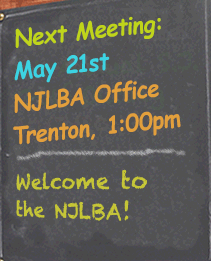By Fred Barnes
INCREASE IN ALCOHOL TAX MAY DECREASE REVENUES FOR THE STATE
Well, they did it. Governor Corzine wanted a 25% increase on wine and hard liquor saying it would bring in an additional $22 million, and the Legislature gave him what he wanted by a vote of 21-18 in the Senate and 45-33 in the Assembly.
However, according to an industry analysis, this increase will substantially diminish New Jersey’s competitive advantage over boarder states (NY & PA) and directly result in lower sales of alcoholic beverages.
It is predicted that spirit sales will decline by 300,000 gallons – approximately 2% of the state volume) and wine by 175,000 gallons. These lost spirit sales will result in $43 million lost at retail and $7 million for wine for a total of $50 million.
With lower sales from border states, and the decline from within the state, the increase in the alcohol beverage tax translates into lower excise tax, sales tax and corporate income tax for suppliers, wholesalers and retailers and W-2 wages for NJ employees.
These projections are consistent with NJ’s experience following its last excise tax increases in 1990 and 1992. The combined increase amounted to a 57% increase in the excise tax rates, but caused a 4% decline in industry sales.
Across the border in Delaware, they cut their spirits excise tax rate in 1997. As a result, sales jumped nearly 13%, and it has steadily grown at a rate of 4.3% annually. New Jersey should look at this model as a way to allow its economy to grow.
Instead, New Jersey seems intent on destroying the bar and restaurant business at a time when sales are already down by 30%. This new tax increase, coupled with the loss of sales from the “no-smoking” ban; the “Family Leave” Act; and the new Fire Code Regulations (estimated to cost each business $30,000 to $50,000), will simply be devastating to our industry.
|






